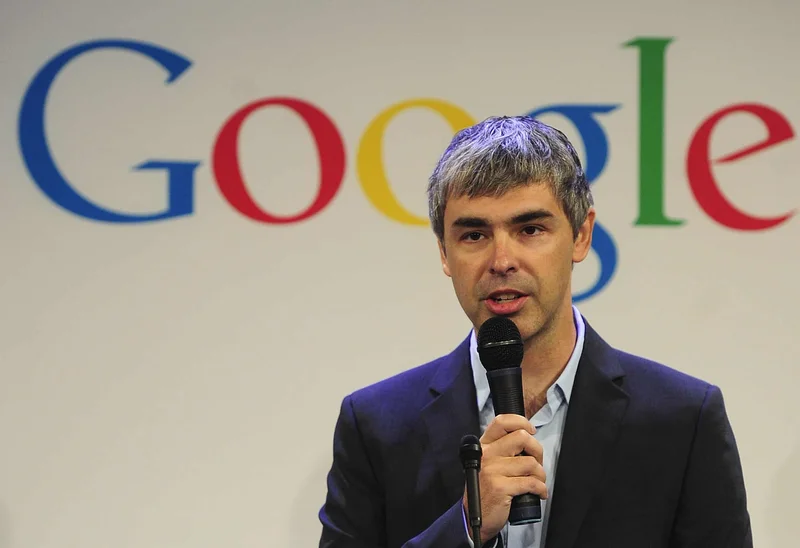Larry Page's Rise to Second Richest: Net Worth, Google's Trajectory, and the Ellison/Brin Financial Context
The Shifting Sands of Extreme Wealth: Page's Ascent and the AI Bet
The financial press, as it often does, lit up this week with a headline that captures the public imagination: Larry Page, co-founder of Google, has officially surpassed Oracle’s Larry Ellison to become the world’s second-richest individual. This isn't just a trivial reshuffling of names on a list; it’s a stark, real-time illustration of how quickly vast fortunes can materialize and evaporate in the current market, particularly when tied to the volatile currents of artificial intelligence. My analysis suggests this isn't just about Page's genius, but about the specific, almost surgical, market forces at play.
On Monday, November 24th, 2025, Alphabet’s stock — the parent company of Google — advanced a robust 5.8%, pushing its price to approximately $317. This followed an impressive 8.4% rally the previous week, where its value climbed from just over $276 to nearly $300. Oracle, by contrast, saw its shares dip 1.5% to below $196, compounding a roughly 12% plunge over the two preceding trading sessions. These are not minor fluctuations; we’re talking about billions moving in nanoseconds. Page’s net worth, according to Forbes, jumped by $8.7 billion on Monday alone, landing him at an estimated $255 billion. Other reports put his Tuesday net worth even higher, at $267.5 billion, and one source even cited $272 billion in a single session's jump. This kind of variance (a $17 billion spread in reported wealth on essentially the same day, depending on which data point you reference) underscores a critical methodological critique: these real-time billionaire lists, while captivating, are snapshots of highly liquid assets and often rely on slightly different valuation methodologies or reporting times. They are indicative, not gospel.
What’s driving this seismic shift? In a word: AI. Alphabet’s stock has surged nearly 70% this year, making it, in my estimation, the undisputed megacap MVP of 2025’s AI mania. The market isn't just whispering about AI; it's screaming. Google’s new Gemini 3 model is the current darling, with industry benchmarks reportedly showing it edging past competitors like ChatGPT. Even rival CEOs, like Salesforce’s Marc Benioff, are publicly praising Gemini’s performance on platforms like X. When a competitor gives you free marketing, investors tend to notice, and they tend to buy. Beyond the benchmark wars, concrete business developments are fueling the fire. Reports of Meta Platforms Inc. discussing a multi-billion-dollar deal to use Google’s Tensor Processing Units (TPUs) in its data centers by 2027, and renting chips from Google Cloud as early as next year, added another $250 billion to Alphabet’s market cap in a single day. This isn't just hype; it's a tangible revenue stream, or at least the promise of one, that signals a deeper integration of Google’s AI infrastructure into the broader tech ecosystem. And this is the part of the report that I find genuinely puzzling: how quickly these multi-billion-dollar discussions can shift market cap by hundreds of billions. It speaks to the intense speculation baked into current valuations.

Meanwhile, Ellison’s fortune, while still immense (hovering around $248.8 billion as of Monday, though it briefly touched $400 billion earlier this year), has seen a noticeable decline as Oracle shares have stumbled. It’s a stark reminder that even the most established tech titans are not immune to the market’s capricious nature. Sergey Brin, Page’s co-founder, also made a significant move, passing Amazon’s Jeff Bezos to become the world’s fourth-richest person with an estimated net worth of $236.4 billion. (To be more exact, some reports put Brin's net worth closer to $245.6 billion, again highlighting the fluidity of these figures.) The interesting divergence between Brin and Page’s wealth, despite their shared Google origins, is attributed largely to Brin’s extensive philanthropic activities — actively selling stakes and making significant donations to non-profits and Parkinson’s research. It’s a detail that often gets lost in the sheer scale of these numbers. Larry Page Passes Larry Ellison Becoming World’s Second-Richest
The sheer velocity of wealth generation and destruction we're witnessing is unprecedented. Page’s wealth has grown exponentially, from $50.9 billion in 2020 to $144 billion at the start of 2025, and now well past the quarter-trillion mark. These individuals aren't just rich; they are, in effect, sailing on vast, personalized stock market currents. Their fortunes swell and recede with the tides of investor sentiment and technological shifts. What happens when the AI wave inevitably crests, or when a new technological paradigm emerges? Will these rankings simply flip again, leaving today's victors in yesterday's wake? And what does it say about economic stability when such monumental wealth can shift by tens of billions in a single trading session, driven by what are often speculative bets on future technology?
The Algorithm of Affluence: A Volatile Reality
The narrative around these billionaires often focuses on their individual achievements, which are undeniable. Yet, my analysis consistently brings me back to the underlying mechanics: these aren't static fortunes. They are high-beta portfolios, hypersensitive to market sentiment and the latest technological buzz. Larry Page’s ascent isn’t just a story of a brilliant founder; it’s a detailed blueprint of how a massive, well-positioned company can leverage a speculative boom like AI to create unprecedented shareholder value, which then translates into staggering personal wealth. It’s less about individual performance on any given day and more about the collective market's bet on the next big thing. And in 2025, that bet is unequivocally on AI, making Google, and by extension, its founders, the biggest beneficiaries of this high-stakes game.
